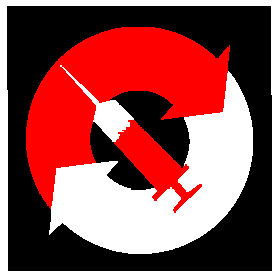 | |
This bill deletes the prohibition on the use of funds for needle exchange programs. Scientific studies have documented that needle exchange programs, when implemented as part of a comprehensive prevention strategy, are an effective public health intervention for reducing AIDS/AIV infections and do not promote drug use. The judgment we make is that it is time to lift this ban and let State and local jurisdictions determine if they want to pursue this approach.The vote followed a protest at the US Capitol in which 26 AIDS activists chained themselves together in the Capitol Rotunda earlier in the day. President Obama pledged during his primary campaign to eliminate the ban. Legislation allows the president to do so if certain scientific findings are made, specifically that needle exchange programs do not increase community drug use levels, and do reduce the spread of HIV. These findings were made long ago, and the Clinton administration acknowledged them, but declined to eliminate the ban. Earlier this year the Obama administration punted the issue to Congress by including the ban in its budget proposal while verbally expressing support for needle exchange. Whether Obey's subcommittee took action because of administration support, or despite a lack of administration support, I don't know. Perhaps a greater savant than I will enlighten us. Now the bill heads to the full committee, after which it will go to the floor of the House of Representatives. Drug warriors may try to add the ban back at either stage. Victory also depends on what happens on the Senate side. Assuming the House and Senate do not approve exactly identical Labor and HHS budgets, it will go to a conference committee that includes both Reps and Senators. Elimination of the ban will neither increase nor decrease the amount of money the federal government spends on AIDS prevention, at least not directly. What it will do is allow state governments who receive federal AIDS grants to choose whether or not to spend some of that money on needle exchange. Those states which are in the habit of using scientific evidence to guide their policies will support needle exchange.
This work by StoptheDrugWar.org is licensed under Creative Commons Attribution-ShareAlike 4.0 International
Add new comment